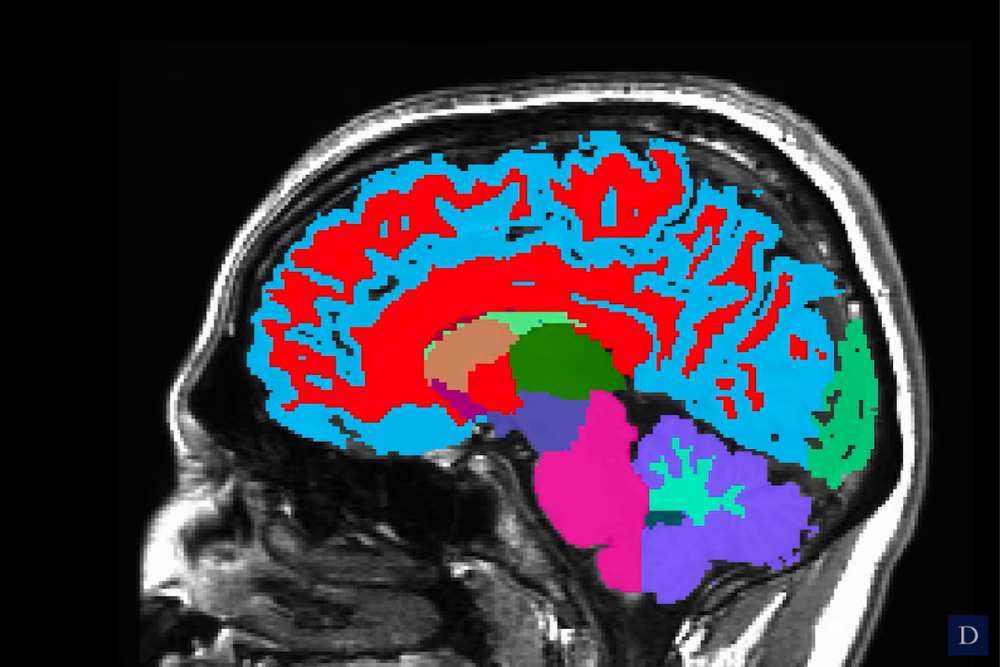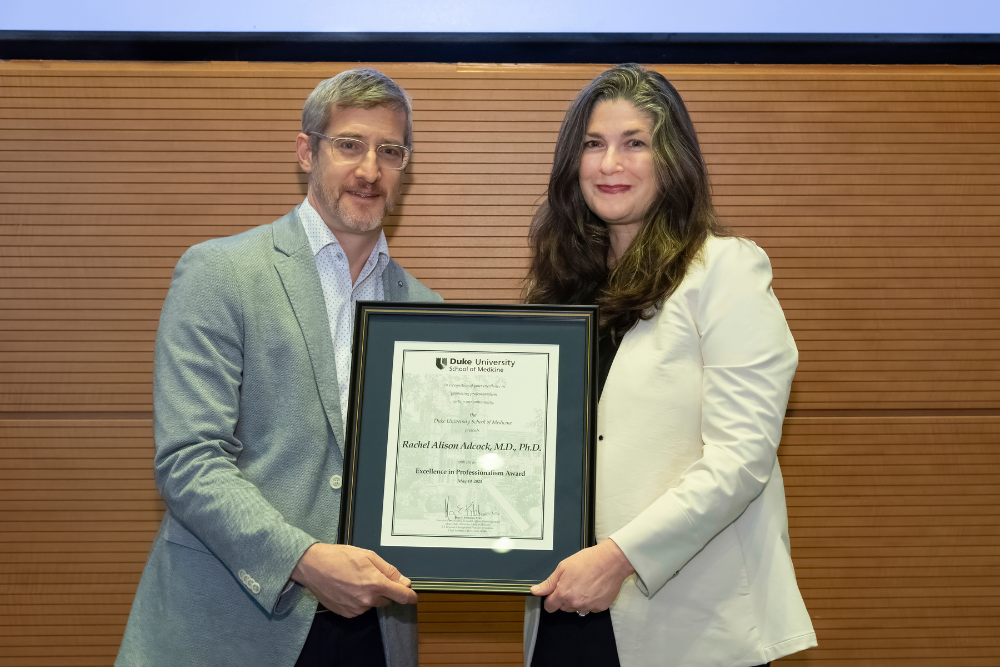Check out our news archive below to learn more about what’s happening in Duke Psychiatry & Behavioral Sciences!
Can Electronic Health Records Reveal Early Signs of Autism?
By leveraging routinely collected health data, Duke researchers—including Duke Psychiatry's Geraldine Dawson, PhD, Lauren Franz, MBChB, MPH, and Gary Maslow, MD, MPH—aim to address a critical need for efficient, consistent, and objective methods for early autism screening.
Study Shows More Colleges Are Embracing Peer Support — Just Not in the Same Way
A recent Duke-led study published in the Journal of American College Health offers the most comprehensive look to date at the availability, structure, and quality of peer mental health support programs at colleges and universities across the U.S. Researchers found that program characteristics vary widely and that greater collaboration may improve the impact of these programs. Duke Psychiatry's Nancy Zucker, PhD, is the study's senior author.
Apex Selected as Home for New NC Children’s Health Campus
With the goal of creating a brighter future for our children, North Carolina Children’s Health (NC Children’s) has chosen a location in Apex for its campus, which will include the only freestanding, independent children’s hospital in the Carolinas. NC Children’s, a partnership between UNC Health and Duke Health, will be built on approximately 230 acres of land at the intersection of US-1 and NC-540.
Duke Psychiatry Faculty Members Selected for Duke-NUS Travel Grants
Maragatha (Maggie) Kuchibhatla, PhD, and Katherine Ramos, PhD, received Duke-NUS travel grants in support of academic visits to Singapore, deepening the long-standing partnership between the two institutions. The initiative aims to foster cross-campus collaboration in research, education and innovation in academic medicine.
Scientists Can Tell How Fast You’re Aging From a Single Brain Scan
Imagine a tool to measure how fast you’re aging — while you’re still reasonably healthy. From a single MRI of your head, researchers can measure your aging rate and predict your risk of dementia and disability years into the future, while you might still have an opportunity of improving your health. Duke Psychiatry's Terrie Moffitt, PhD, and Avshalom Caspi, PhD, were co-authors on the study.
Duke Psychiatry Honors Professors and Residents with 2025 Awards
Congratulations to our Duke Psychiatry & Behavioral Sciences trainees and faculty members who received these year-end awards.
Three Duke Psychiatry Faculty Members Retire with Emeritus Status
Three faculty members who have retired from the Department of Psychiatry & Behavioral Sciences this year have been honored with emeritus/emerita status: Robin H. Gurwitch, PhD, David J. Madden, PhD, and Robert A. Murphy, PhD.
How to Turn Down the Noise and Turn Up Your Well-Being
Silence can have a profound effect on mental and physical health. Intentionally adding silence to your day by purposefully stepping away and tuning out the cacophony of physical and digital noise that surrounds can have great benefits. Duke Psychiatry's Moria Smoski, PhD, shared her expertise in this Working@Duke story.
Court-Ordered Assisted Outpatient Treatment Improved Outcomes in People with ‘Serious Mental Illness’
A recent study suggests court-ordered Assisted Outpatient Treatment (AOT) programs for people with serious mental illness are associated with better treatment adherence, less violent and suicidal behavior, and reduced hospitalization and homelessness. The study was co-authored by Jeff Swanson, PhD, and Marvin Swartz, MD, of Duke Psychiatry.
R. Alison Adcock Receives SOM Professionalism Award
R. Alison Adcock, MD, PhD, associate professor of psychiatry and behavioral sciences, received the Duke University School of Medicine’s Excellence in Professionalism Award. This award recognizes faculty members who exemplify professionalism and personify Duke’s guiding principles.









